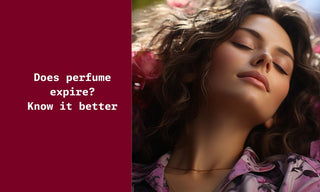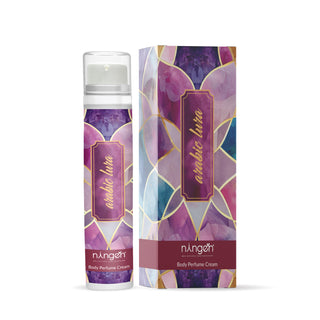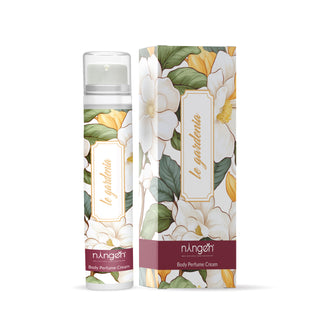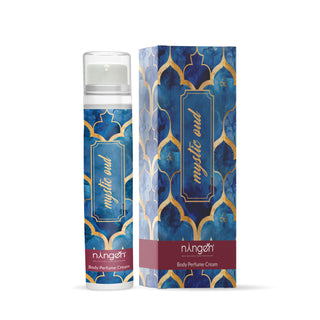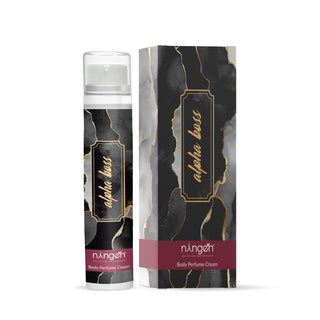Have you ever wondered if your favorite bottle of perfume has an expiry date?
Perfume enthusiasts and casual users alike often find themselves pondering this question. After all, while some products come with clear expiration dates, others seem to last indefinitely.
In this article, we will dive into does perfume expire, the signs of expiration, and how storage conditions can extend or reduce a fragrance's lifespan. We'll also provide tips for proper perfume storage and discuss the common culprits that can turn your treasured scents into a faded memory. So, if you've ever been curious about whether that bottle of perfume sitting on your shelf is still good to use, read on our article to uncover the answers!
Table Of Content;
- What is Perfume?
- Does Perfume Expire?
- Why Does Perfume Have an Expiry Date?
- Chemical Reactions and Ingredient Stability
- Factors Affecting Perfume Shelf Life
- Proper Storage of Perfume
- Common Enemies of Perfume
- How to Extend the Life of Your Perfume
- The Takeaway
- TL;DR(Too long; didn't read)
What is Perfume?
Perfume is a type of scented liquid/creams that people use to make themselves smell nice. It's made up of a mixture of oils, alcohol, and water, along with fragrant ingredients like flowers, fruits, spices, or wood. When you spray or dab perfume onto your skin, the scent sticks to you and stays there for a while, giving off a pleasant aroma. People have been using perfume for thousands of years to smell good and feel confident. There are many different types of perfumes, each with its unique smell, and they come in various forms like sprays, oils, or lotions.
The artful combination of these ingredients results in a delicate balance of scents designed to evoke emotions, memories, and sensations. The longevity and potency of a perfume depend not only on the types and concentrations of essential oils employed but also on the skillful composition of its aromatic elements.
Does Perfume Expire?
Yes, perfume does have an expiry date.
While an unopened bottle of perfume can retain its fragrance for several years—typically between 1 to 10 years—once opened, its chemical composition gradually alters, reducing its intended scent. The average shelf life of an opened bottle is roughly three to five years. Heavier base notes, like those found in high-quality perfumes with woodsy nuances, may extend this longevity due to their robust characteristics.
Later in this article, we'll discuss the reasons and precautions in detail.
|
Factors Affecting Shelf Life |
Description |
|
Storage |
Keep it in the original bottle, away from light and heat |
|
Base Notes |
Woodsy or heavier notes endure longer |
|
Bottle State |
Unopened perfumes generally last longer |
|
Quality |
Higher-quality perfumes may enjoy a longer shelf life |
- Always store perfumes in their original bottle to prevent exposure to air.
- Signs of expiration include changes in color, scent, or skin irritation.
Why Does Perfume Have an Expiry Date?
Perfumes, though cherished, are subject to degradation over time due to environmental factors. A perfume's shelf life typically ranges from three to five years when stored optimally.
- Once opened, a perfume's shelf life begins to diminish.
- The quality and type of ingredients, whether natural or synthetic, influence how quickly a perfume degrades.
- Oxidation, caused by exposure to oxygen, is a primary factor in perfume degradation.
- Improper storage can accelerate oxidation, altering the scent and rendering it unusable.
- Signs of an expiring perfume include changes in color, consistency, and aroma.
- Presence of an expiration indicator, like a batch code, can help track a perfume's shelf life.
It's essential to acknowledge that every fragrance has an expiration date, and using an expired perfume may lead to skin irritation.

Chemical Reactions and Ingredient Stability
The stability of a perfume's ingredients largely dictates its resistance to expiration. Perfume expiration is essentially the result of its components deteriorating, leading to signature scents losing their charm and potency. Chemical stability in a fragrance is best preserved by maintaining optimal storage—an endeavor to keep it away from heat and sunlight, fostering an environment where scent molecules thrive unaltered.
Exposure to Air and Light
Air and light can really affect how long a fragrance lasts. Perfume is a delicate thing, and exposure to air and light can mess it up, making it lose its nice smell. Even though clear bottles look nice, they don't do much to protect the perfume from sunlight, which can make it go bad faster.
Shelf Life of Perfume
Every bottle of perfume has a limited lifespan, determined by how it's made, where it's kept, and its chemical composition. The ingredients in perfume can change over time, especially if it's stored improperly or if it has a high concentration of alcohol or water, which can make it evaporate faster.
Once perfume reaches its expiry date, it can cause skin irritation or allergies if used. Perfume bottles are made to protect the scent from things like light and air, but they can only do so much for so long. Recognizing when a perfume expires not only ensures a good experience but also respects the work of the creators who made it.
Signs of Expiration of Perfume
Identifying an expired bottle of perfume can be as subtle an art as understanding its bouquet. Here are several telltale signs to discern whether your treasured fragrance might have reached its twilight:
Changes in Scent
A once cherished scent now seeming off, sour, or radically different from its original bouquet can be a clear indicator of expiration. These scent modifications materialize as the chemical composition of the fragrance alters over time. Heat sources, direct sunlight, and even air can hasten the degradation of perfume, thus affecting its quality and overall olfactory experience. As chemical stability is essential for preserving the essence of a fragrance, these alterations herald not simply a shift but potentially the end of a perfume's prime.
Discoloration or Opacity
Perfume bottles often showcase an alluring crystal clarity, or a rich hue characteristic of the scent within. Witnessing significant changes in color or the emergence of cloudiness suggests that the constituent ingredients may have reacted chemically, perhaps suffering from exposure to direct sunlight or temperature fluctuations. Evident discoloration in a perfume is like an aging photograph, signifying that time and the elements have left their indelible marks. This transmutation in appearance is more than cosmetic; it can be the visual confirmation of an expiring or expired perfume.
Presence of Sediments or Particles
Like a fine wine, an unopened bottle of perfume is meant to stay undisturbed. But if you notice particles or sediment in the liquid, it's a sign of oxidation, which means the perfume isn't as fresh as it should be. This happens more in delicate fragrances with light top notes. Sediment, especially in older citrus or floral scents, tells you it's time to say goodbye to the fragrance
Unpleasant or Off-putting Smell
Expired perfume can develop an unpleasant smell, like acid or vinegar, when its delicate balance of ingredients is thrown off. Storing perfumes properly away from extreme temperatures and light is crucial to prevent this. As perfume lovers, it's important to recognize these signs and take care of our fragrances to ensure they stay enjoyable.
Factors Affecting Perfume Shelf Life
The lifespan of perfume isn't just about when it was bought; many things affect how long it lasts. Natural ingredients like essential oils don't last as long as synthetic ones. How perfume is stored matters too—keeping it away from light, heat, and air helps it stay fresh longer. Using perfumes within their prime is important; even if they're unopened, they can lose their original scent over time. Knowing a perfume's batch code can help figure out when it might expire.
Temperature and Heat
Heat poses a hidden danger to perfume, speeding up its breakdown. To keep a perfume vibrant, it's best to store it away from heat sources and maintain a temperature below 15 degrees Celsius (59 degrees Fahrenheit). Bathrooms might seem like a good spot, but they have temperature swings that can dull a perfume's scent or even cause irritation if it's expired. By keeping perfume in a stable, cool environment, it can maintain its full essence over time.
Exposure to Sunlight
Perfumes are sensitive to aging, especially when exposed to sunlight. Sunlight can change their chemical makeup, causing discoloration and a loss of scent quality, indicating expiration. To protect perfumes, store them in a dark place away from sunlight. This helps minimize alcohol evaporation and maintains the perfume's integrity, preserving its original essence and extending its lifespan.
Storage Conditions
To preserve a bottle of perfume, it's best kept in a cool, dark place, away from temperature fluctuations and light. Storing it in its original packaging or bottle helps maintain the complexity of the scent as intended by the manufacturer. While refrigeration may seem like a solution, extreme temperatures can alter the perfume's character. Luxury perfumers emphasize stable conditions, akin to a wardrobe or secluded shelf, to protect the fragrance's integrity and story of notes over time. Perfume creams are easier to store since they are packaged in airless bottles that prevent wastage and prevent evaporation like liquid perfumes.
Proper Storage of Perfume
Properly storing perfume goes beyond mere placement—it's about preserving its essence and vitality. Shielding it from light and heat is crucial, as they can alter its delicate chemistry. Keeping it in its original bottle not only adds to its appeal but also safeguards its integrity. Choose a cool, dark spot away from temperature fluctuations, like a drawer or a box on your dressing table. These conditions help extend its shelf life, allowing you to cherish it for longer. By following these storage tips, you can ensure your perfume retains its enchanting aroma from the first spritz to the last.
Temperature and Humidity Control
Like fine wines, perfumes thrive in a cool, dark environment that preserves their aroma. Heat and humidity can disrupt their delicate chemistry, altering their scent profile. Avoid storing perfumes in bathrooms, where steam can accelerate their deterioration, and refrain from refrigeration, as sudden temperature changes can be harmful. Instead, opt for a stable climate to ensure your perfume ages gracefully and maintains its desired fragrance.
Avoiding Direct Sunlight
Sunlight can be detrimental to perfumes, as its intense rays can alter the fragrance's chemical composition, leading to discoloration and changes in consistency. To preserve their olfactory charm, it's essential to store perfumes in dark environments away from direct sunlight. Optimal hiding spots include drawers, closets, or cabinets far from windows, ensuring that each spritz maintains its potency and pleasant scent.
Keeping the Bottle Sealed
Sealing your perfume bottle properly after each use is essential to protect it from air exposure, which can degrade the fragrance over time. Whether it's tightly screwing the cap back on or snapping the atomizer shut, this simple act preserves the scent's integrity, allowing it to age gracefully and maintain its aromatic essence.In this case, the cream-based perfume, that comes in airless pump bottles, are safer for leakage and exposure.
Note: Click on the link to know more about perfume creams.
Storing in a Dark Environment
To keep your perfumes fresh and fragrant for longer, shield them from UV light which can speed up their expiration. Store them in a cool, dark place like a dresser drawer or a wardrobe, away from light and heat. Proper storage isn't just about preserving scent; it's about cherishing the memories each bottle holds. By storing your perfumes correctly, you're not only safeguarding your investment but also paying tribute to the art of perfume making. In the darkness, perfumes can last for years, ready to evoke memories and emotions with every spray.
Common Enemies of Perfume
The aromatic elixirs we cherish in our bottles of perfume are under constant threat from a variety of sources that can compromise their fragrant splendor. Perfumes are complex concoctions with volatile chemical compositions that require careful storage to maintain their delicate balance. The enemies that can spoil your favorite scents are multifaceted—from heat and oxygen to improper storage, these factors can lead to the deterioration and a shortened lifespan of your treasured fragrance.
Exposure to Oxygen
When you open a perfume bottle, oxygen rushes in and starts the oxidation process, which can change the scent over time. Fragile top notes, like citrus and fruits, are particularly vulnerable. The more you open the bottle and leave air inside, the faster the scent can degrade, sometimes turning sour or metallic. To prevent this, store your perfume properly to minimize oxygen exposure, preserving its scent and longevity.
Bacteria Exposure
Direct skin contact with a perfume bottle's nozzle can introduce bacteria, compromising the fragrance over time, especially in perfumes with natural ingredients. This can lead to decay and skin irritation. Keeping hands clean before use and avoiding sharing perfume can reduce the risk of bacterial contamination.
Heat and Temperature Fluctuations
Heat speeds up the evaporation of volatile components in perfume, particularly the delicate top notes, altering the immediate aroma. Extreme temperatures can also break down perfume oils, reducing both the fragrance and its lifespan. Consistently storing perfume at a stable temperature, away from heat sources and temperature fluctuations, preserves its essence and longevity.
Air Exposure
Air exposure accelerates the evaporation of alcohol in perfume, disrupting its balance and potency. Storing perfume in a sealed container, ideally its original bottle, in a controlled environment helps prevent air from diminishing its scent. Consistent care in storage ensures your favorite perfume retains its original aroma and lasts longer.
How to Extend the Life of Your Perfume
To preserve your perfume's enchanting aroma, store it in a cool, dark place away from sunlight and heat. Tighten the cap securely after each use to minimize air exposure. Rotate fragrances to ensure they're used before expiring. Regular use slows aging, while perfumes with heavier base notes tend to last longer. These simple steps help maximize your perfume's potency and longevity, letting you enjoy each use to the fullest.
Note: To know more about how to make perfumes long-lastting, click on the link.
Using Perfumes with Higher Concentration of Perfume Oil
When selecting a fragrance, the concentration of perfume oil is key. Parfum has the highest concentration (15% to 20%), lasting up to 2 days, followed by Eau de Parfum (10% to 15%) with an 8 to 10-hour duration. Higher oil concentrations offer potent scents and longevity but require careful storage away from light and heat. Transparent bottles are especially susceptible to light degradation. Choosing high-concentration fragrances and proper storage ensures your Expensive Perfume maintains its quality and complexity over time.
Using Alcohol-Based Perfumes
Alcohol is key to preserving fragrances, found in perfumes with concentrations from 70% to 90%. It releases fragrance notes and prevents oxidation, keeping perfumes fresh. Used since ancient times, alcohol preserves perfumes, especially in colognes and Eau de Toilettes, better than oil-based or alcohol-free options. Higher concentrations ensure fragrance integrity, making alcohol-based perfumes a practical choice for lasting scent enjoyment.
Why alcohol-free perfumes are widely accepted nowadays?
Alcohol-free perfumes are gaining popularity for several reasons. Firstly, they cater to individuals with sensitive skin or allergies, providing a fragrance option that minimizes the risk of irritation.
Additionally, alcohol-free perfumes are often perceived as more natural and environmentally friendly, appealing to consumers seeking eco-conscious products.
They also offer longer-lasting scents as alcohol can evaporate quickly, allowing the fragrance to linger on the skin for a more extended period. Finally, alcohol-free perfumes are often preferred by those who prefer a subtle scent or who work in environments where strong fragrances are discouraged.
Overall, the growing acceptance of alcohol-free perfumes reflects a shift towards inclusivity, sustainability, and personal preference in the fragrance industry.

Regularly Clean the Nozzle and Cap
Maintaining the freshness of your perfume extends beyond its storage—it involves regular cleaning of the nozzle and cap. Tightening the cap after each use protects the fragrance from air exposure, preserving its quality and preventing evaporation. Keeping the perfume in its original bottle is essential to minimize air exposure further. Perfume bottles with atomizer sprays are designed to shield the fragrance, but cleaning the nozzle and cap regularly prevents bacterial buildup and ensures each spritz is as fresh as the first. Incorporating these cleanliness practices into your routine preserves the integrity of your fragrance.
Is it Safe to Use Expired perfume?
Using expired perfume is generally not recommended, as it can potentially cause skin irritation or allergic reactions. When perfumes expire, their chemical composition can change due to oxidation and other reactions. This alteration may lead to an unpleasant smell or affect the integrity of the fragrance. Moreover, expired perfumes may no longer perform as intended, diminishing their ability to provide a pleasant scent.
To avoid any potential risks, it's best to discard expired perfumes and replace them with fresh ones. Proper storage can help extend the shelf life of perfumes, but once they have passed their expiration date or begun to smell off, it's safer to avoid using them on your skin.
Is it Better To Store Perfume in a Refrigerator?
This is a debatable topic. Some fragrance experts advocate for storing perfume in a refrigerator, while others advise against it. Let's explore both perspectives:
Storing perfume in a refrigerator can help prolong its s
Pro Refrigerator Storage:
helf life. Perfume's chemical composition is sensitive to temperature fluctuations and air exposure, which can accelerate degradation and alter the scent. A consistent, cool temperature helps preserve the fragrance's integrity.
Key points for proper storage:
- Original Bottle: Keep the perfume in its original bottle to avoid air exposure.
- Tight Seal: Ensure a tight seal to prevent oxidation.
- Consistent Temperature: Store in a stable area, not the door, to maintain a consistent temperature.
- Separate from Food: Keep perfumes away from food items to avoid cross-contamination of scents.
Avoid storing perfumes in the freezer, as extreme cold can be as harmful as heat.
Against Refrigerator Storage:
It is generally not recommended to store perfume in a refrigerator. Perfumes are best stored in a cool, dry place away from direct sunlight and extreme temperatures. Storing perfume in a refrigerator can expose it to fluctuations in temperature and humidity, which may affect its fragrance and chemical stability over time.
Ideally, perfumes should be stored in their original bottles with the cap tightly sealed to minimize exposure to air. Consistent temperature and humidity levels help preserve the integrity of the fragrance for longer. A cool, dark cabinet or drawer in a room temperature environment is usually sufficient for storing perfumes effectively.
If you want to ensure your perfume lasts longer, avoid storing it where temperature fluctuations are common, such as bathrooms or near windows. Keeping the bottle in a stable environment will help maintain its quality and fragrance.
Explore our handpicked assortment of perfume creams in the designated category.
The Takeaway
We've thoroughly explored the question "Does perfume expire?”. Hope you found this helpful. by discussing key factors influencing a fragrance's shelf life. From ingredients and storage conditions to signs of expiration and the rise of alcohol-free perfumes, readers gained valuable insights into preserving their scents. By adopting proper storage, cleaning routines, and selecting high-concentration fragrances, they can prolong perfume enjoyment. This journey, driven by inclusivity, sustainability, and personal preference, ensures each spritz delivers a delightful olfactory experience for years to come.
TL;DR(Too long; didn't read)
Perfume does expire, typically lasting between 3 to 5 years after opening. Factors affecting shelf life include storage conditions, quality of ingredients, and type of perfume. Signs of expiration include changes in scent, color, or consistency. Proper storage in a cool, dark place helps preserve perfume. Alcohol-free perfumes are gaining popuanaylarity for their suitability for sensitive skin and longer-lasting scents. Regular cleaning of the nozzle and cap maintains fragrance integrity. Choose high-concentration fragrances for longer-lasting scents. Overall, proper care ensures each spritz delivers an enjoyable olfactory experience for years.
Frequently Asked Questions(FAQ's)
Question 1. Does perfume expire?
Answer: Yes, perfume does have an expiration date, although it varies depending on various factors.
Q2. How long does perfume last before expiring?
Answer: Typically, an unopened bottle of perfume can last between 1 to 10 years. Once opened, its shelf life is usually around 3 to 5 years.
Q3. What factors affect the expiration of perfume?
Answer: Factors such as storage conditions, quality of ingredients, and the concentration of perfume oil can affect how quickly a perfume expires.
Q4. How can I tell if my perfume has expired?
Answer: Signs of expiration include changes in scent (becoming sour or off), color (turning darker or cloudy), consistency (developing sediments), or skin irritation upon use.
Q5. Can perfume still be used after it expires?
Answer: Using expired perfume may lead to skin irritation or allergies due to the degradation of its chemical composition. It's generally advisable to discard expired perfume.
Q6. How can I extend the shelf life of my perfume?
Answer: Proper storage in a cool, dark place away from heat and sunlight can help prolong a perfume's shelf life. Tightening the cap securely after each use and avoiding exposure to air can also extend its longevity.
Q7. Are there certain types of perfumes that last longer than others?
Answer: Perfumes with heavier base notes, such as woodsy or musky fragrances, tend to last longer compared to those with lighter, floral notes.
Q8. Does the quality of ingredients affect a perfume's expiration date?
Answer: Yes, the quality and type of ingredients used in a perfume can influence how quickly it expires. Higher-quality ingredients may contribute to a longer shelf life.
Q9. Can I store my perfume in the refrigerator to make it last longer?
Answer: While refrigeration may seem like a solution, extreme temperatures can alter a perfume's character. It's best to store perfume in a stable, cool environment away from temperature fluctuations.
Q10. Are there any precautions I should take to prevent my perfume from expiring too quickly?
Answer: Yes, besides proper storage, avoiding exposure to direct sunlight, heat, and air can help prevent perfume from expiring prematurely. Additionally, using perfumes with higher concentrations of perfume oil and rotating fragrances to ensure they are used before expiring can prolong their shelf life.


